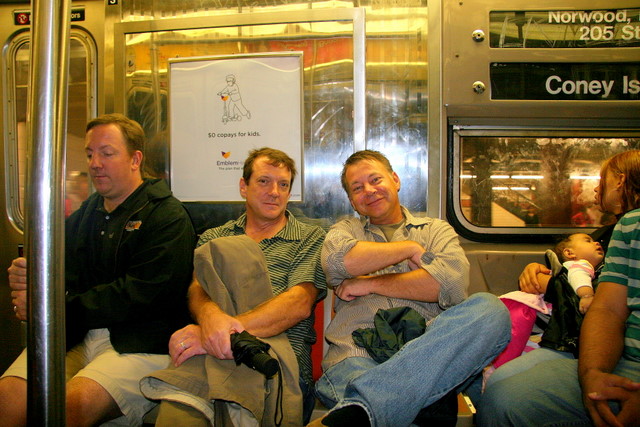I’m buying a twelve dollar bottle of California Pinot Noir Monday night and the sixty-something guy behind the counter (not the owner but an amiable sort and Mets fan) is talking Crazy Joe Gallo with a compadre from the old neighborhood. “I worked for Joey when I was a kid,” Liquor Store Guy says, “running errands at his warehouse. He’d send me out for groceries and I always made sure I brought him back the right change. He was forever paranoid .. checking behind boxes when he came in. ” I listen silently while extracting a pair of fives and ones from my wallet, the words registering in some infrequently tapped corner of my brain. He puts the bottle in a brown bag, thanking me pleasantly before returning to the conversation and finishing his thought. “That was Joey though – he knew what was up. They got him in the end. You live by the sword, you die by the sword.”
Actually, Gallo died by a plate of bivalved mollusks at Umberto’s Clam House on Mulberry Street the night of his forty-third birthday, lending credence to what people say about shellfish always being a risk. He was immortalized two years later in ’74, portrayed by a (relatively) dashing Peter Boyle, in his pre – Everybody Loves Raymond glory. Despite boasting a cast that also featured Rip Torn and Eli Wallach, the film, Crazy Joe, never met with much acclaim and isn’t even available on Netflix.
Thank God for Youtube, though. I fire up a clip of Crazy Joe shortly after getting home, and even before uncorking my California Pinot. Which is somewhat relevant, because people in California tend to associate Gallo more with wine titans Ernest and Julio than they do blue eyed Brooklyn mobsters. For me, the name jars loose childhood memories of television commercials featuring the conspicuously corpulent Orson Welles preaching the virtues of California vineyards – which is somewhat curious, because it was actually Paul Masson that Citizen Kane was pitching. But do you ever really need an excuse to bolster your posting by inserting a link with a certified genius, half in the bag and stomping for a carbonated white from the Golden State? I think not.
I watch the Peter Boyle clip a few times before chopping some garlic and simmering it in olive oil on the stove. Joe Gallo was born in Red Hook – a short walk from my doorstep. The neighborhood’s changed since his time and has acquired an IKEA and Fairway market, but it still retains an air of authenticity, perhaps due to its seaside proximity and lack of subway access. Back in Gallo’s day it was all South Brooklyn anyway, well before Heath Ledger, Boerum or Cobble Hill or even Carroll Gardens. Sure, these names were in place – they just weren’t being played up by commission-centric realtor types. Despite the push toward affluence and gentrification, large pockets of the old neighborhood remain intact, as evidenced by the liquor store downstairs and my corner bakery. I experience a passing moment of appreciation for this as I drop dry pasta in boiling water. Sporadic lamenting aside, there are likely less stimulating setups than living in a Youtube world that retains loose ties to Joey Gallo. It’s in putting it all together that I remain appropriately challenged.


